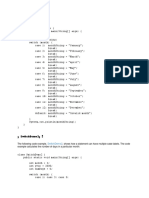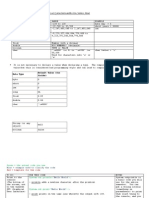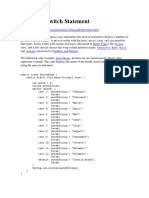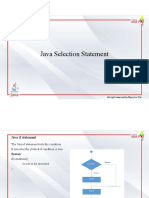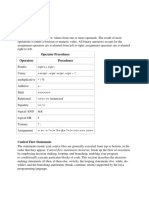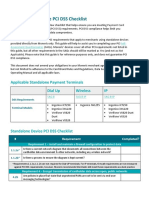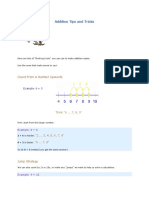0% found this document useful (0 votes)
5 views4 pages5 Switch Case Example
The document provides five examples of switch-case programs in Java, including a simple calculator, a day of the week printer, a vowel or consonant checker, a month name printer from a number, and a nested switch example. Each program demonstrates the use of the switch-case structure to handle different conditions and outputs corresponding results. These examples serve as practical illustrations of how to implement switch-case statements in Java programming.
Uploaded by
Tesu RathiaCopyright
© © All Rights Reserved
We take content rights seriously. If you suspect this is your content, claim it here.
Available Formats
Download as PDF, TXT or read online on Scribd
0% found this document useful (0 votes)
5 views4 pages5 Switch Case Example
The document provides five examples of switch-case programs in Java, including a simple calculator, a day of the week printer, a vowel or consonant checker, a month name printer from a number, and a nested switch example. Each program demonstrates the use of the switch-case structure to handle different conditions and outputs corresponding results. These examples serve as practical illustrations of how to implement switch-case statements in Java programming.
Uploaded by
Tesu RathiaCopyright
© © All Rights Reserved
We take content rights seriously. If you suspect this is your content, claim it here.
Available Formats
Download as PDF, TXT or read online on Scribd
/ 4
